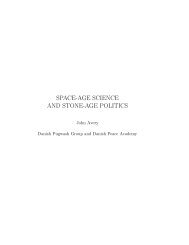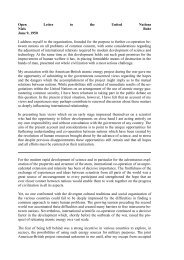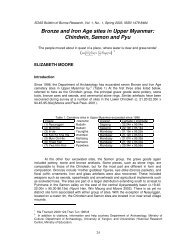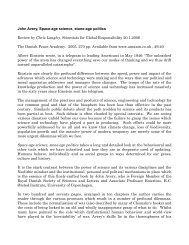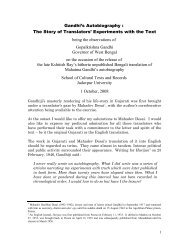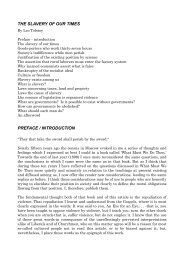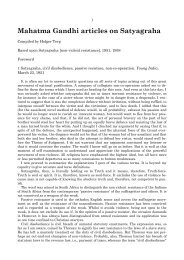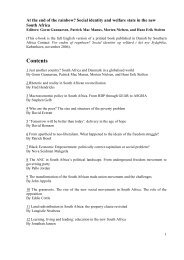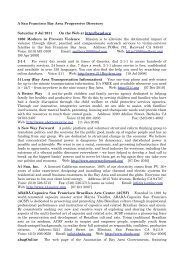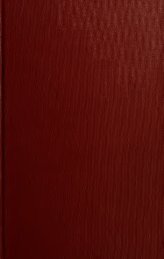Untitled
Untitled
Untitled
Create successful ePaper yourself
Turn your PDF publications into a flip-book with our unique Google optimized e-Paper software.
12 U. S. AND EXPANSION OF LAW BETWEEN NATIONS<br />
may work no inequality between the parties at war, the benefit of<br />
them will be left equally free and open to all."<br />
That definition of the right of private citizens of a neutral<br />
power to sell arms to any belligerent government, subject to<br />
the risk of capture of the arms during their transit on the high<br />
seas, by the cruisers of one of the belligerents, helped to form<br />
international law on that point: and that statement is an abso-<br />
lutely sound exposition of the law of nations on that point today.<br />
Other points of difference between the United States and<br />
Great Britain, requiring a prooper interpretation of the rights of<br />
neutrals, soon arose.<br />
On June 8th, 1793, the British Government, by an Order<br />
in Council, gave instructions to the commanders of British ships<br />
of war and privateers having letters of marque against France,<br />
to seize all neutral vessels laden with "corn, flour, or meal,<br />
bound for any port in France, or any port occupied by the armies<br />
of France," and all neutral vessels, except those of Denmark and<br />
Since the<br />
Sweden, attempting to enter any blockaded port. 12<br />
United States, Denmark, and Sweden were the leading neutral<br />
powers, it was evident that this last measure was aimed against<br />
American vessels. Though dated June 8th, this Order in Council<br />
was not issued until the 28th day of the month. 13 The<br />
British Minister at Philadelphia, Mr. Hammond, in communi-<br />
cating this Order in Council to Secretary Jefferson, said:<br />
"By the law of nations, as laid down by<br />
the most modern<br />
writers, it is expressly stated, that all provisions are to be considered<br />
as contraband, and as such, liable to confiscation, in the case where<br />
the depriving an enemy of these supplies, is one of the means intended<br />
to be employed for reducing him to reasonable terms of peace.<br />
The actual situation of France is notoriously such, as to lead to the<br />
employing this mode of distressing her by the joint operations of the<br />
different powers engaged in the war. . . . The present measure<br />
pursued by His Majesty's Government, so far from going to the extent<br />
which the Law of Nations, and the circumstances of the case<br />
would have warranted, only has prevented the French from being<br />
p. 240.<br />
"American State Papers, Foreign Relations, Washington, 1833, Vol. 1,<br />
"Ibid., p. 241.



